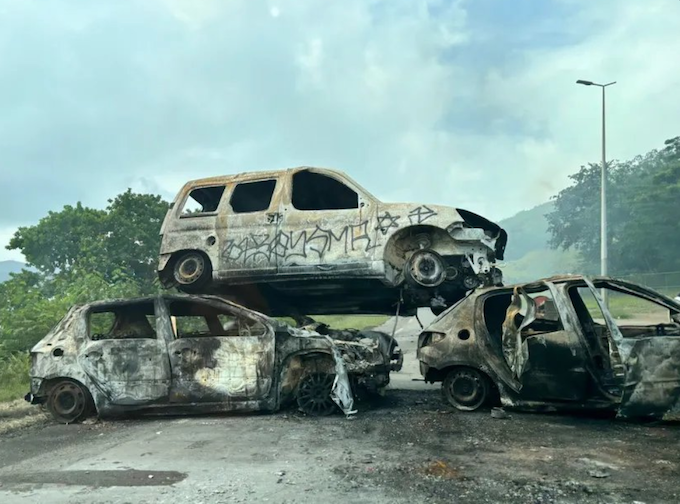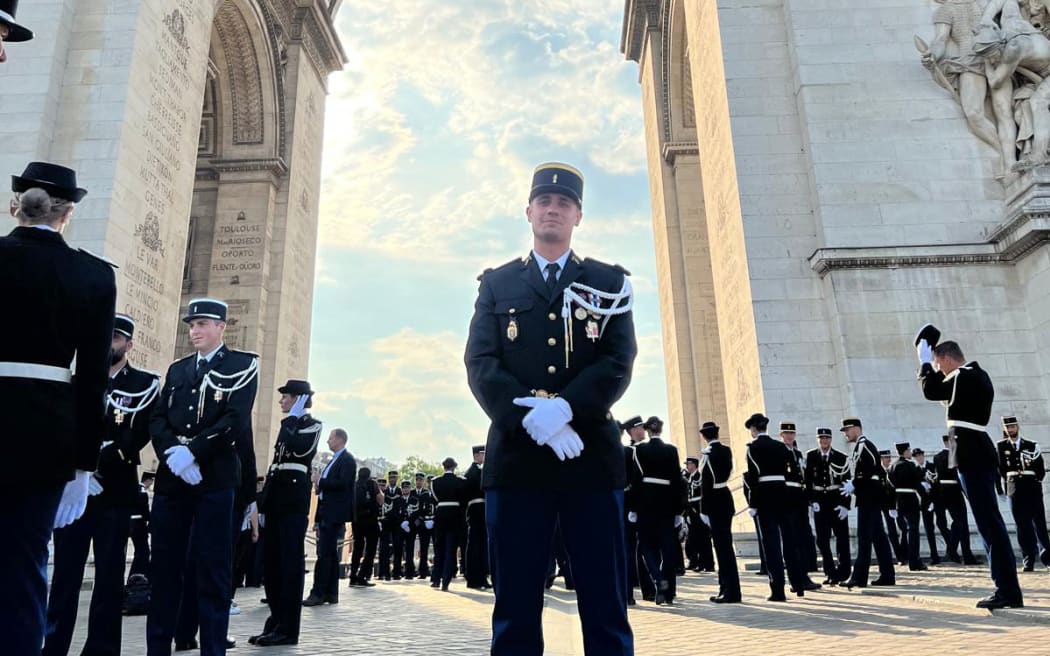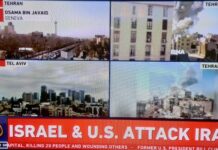
By Lydia Lewis, RNZ Pacific journalist and Kelvin Anthony, RNZ Pacific digital journalist
Police have used tear gas and stun grenades on rioters at an airport near Nouméa as the chaos in New Caledonia stretched into its sixth day.
Five people, including two police officers, have died and hundreds of people are injured amid clashes between authorities and pro-independence protesters.
They were sparked by anger at a proposed new law that would allow French residents who have lived in New Caledonia for more than 10 years to vote — which critics say will weaken the indigenous Kanak vote.
- READ MORE: Kanaky in flames: Five takeaways from the New Caledonia independence riots — David Robie
- Other Kanaky New Caledonia crisis reports
- Full Amnesty International report
- Kanaky – put a stop (really) to the time of colonies!
- Blood on their Banner: Nationalist Struggles in the South Pacific – David Robie
Last night, local media reported rioters on the field at Magenta Airport had thrown hammers and stones at police.
Officers responded with tear gas and stun grenades.
Police warned that if that was not enough to control the situation, the military was authorised to use lethal weapons.
Nouméa is under a nightly curfew, with anyone who violates it warned they could face six months in prison or a fine of up to 895,000 French Pacific francs (NZ$13,000).
A New Caledonia government crisis unit spokesperson said there was enough food in the country to last two months.
However, there was a restocking issue, with some roads impassable due to debris.
A 71-year-old woman who missed out on dialysis treatment this week due to the blockages has finally been transported to Nouméa by boat for treatment.
Meanwhile, cars have been set on fire at Dumbéa town hall. Mayor Yohann Lecourieux told the public television station NC La Première he was “worried about the future”.

Journalists attacked
La Première is strengthening security surrounding its journalists after an incident where a reporting team was attacked by about 20 hooded men.
A reporter said she and a camera operator were attacked yesterday morning near the centre of Nouméa.
The men ordered them to leave, then smashed the windows of their car, the reporter told AFP news agency.
They also snatched the camera operator’s camera from his hands and threatened him with a stone.
The journalists were not injured and were rescued by a passing motorist.
La Première news content director Olivier Gélin told AFP the station’s journalists would be accompanied by security agents until further notice.
“We will now take people to protect the teams during filming, in addition to the classic protections in this type of situation — helmets and bulletproof vests,” he said.
Meanwhile, Coralie Cochin said her husband, a reporter for AFP, was photographing the burnt ruins of a shop when a man started throwing rocks at him.
An intern who had been working with Cochin at the local media outlet, La Première, was also attacked yesterday.
She was also rescued by a passing motorist, but lost her belongings in the ordeal.
END FRENCH SETTLER COLONIALISM IN KANAKY, IN MELANESIA, IN PACIFICA !
WE’RE PEOPLE FROM PACIFICA! https://t.co/6rAyyHLycj
— Rsy (@rosymakalu) May 17, 2024
‘A complete war zone’
A resident of Portes de Fer, in the centre of Noumea, said it was terrifying to witness the chaos unfold.
Hari Simon told RNZ Pacific that businesses, houses, car companies and factories in the area had all been burnt.
It was “a very frightening scene punctuated by the sound of gunshots that broke the silence of the night,” he said.
There was “a threatening sense of danger looming in the air,” he said.
At night, people roamed the streets with guns, burning down buildings and exchanging fire with police officers.
However, since the arrival of the first batch of military police officers (gendarmes) on Wednesday, the situation had died down a little, he said.
Residents did not expect the violence to escalate so quickly and were caught off guard, he said.
“When we became fully aware of the gravity of the situation that Monday night and, more specifically in the early hours of Tuesday morning, road blocks had already been erected.”
This article is republished under a community partnership agreement with RNZ.











































